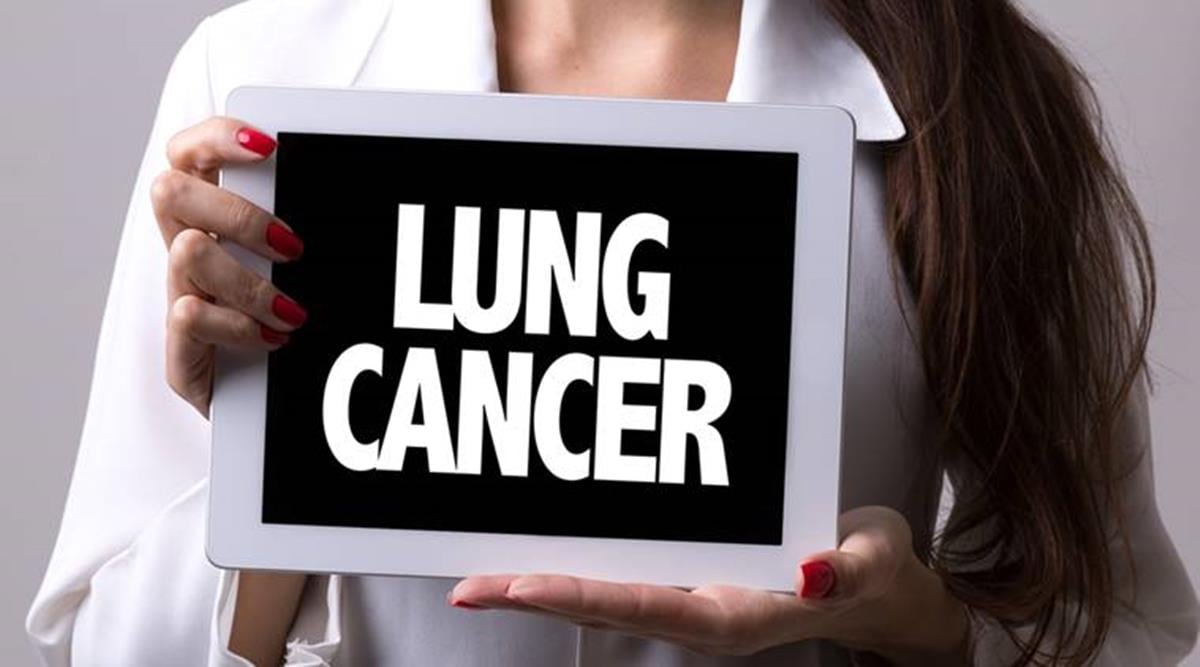"Luckily, there is data available which suggests that lung cancer in non-smokers is relatively less aggressive," says Dr Ashu Abhishek of Fortis Hospital, Gurugram

Among the most common cancers present in the world right now is lung cancer. It is important to know that smoking has always been the strongest causative risk factor for this disease. That is why avoiding smoking or trying to quit smoking has always been considered as one of the best ways to save people from future lung cancer risk.
Dr Ashu Abhishek, senior consultant of Radiation Oncology at Fortis Hospital, Gurugram says: “In our clinical practice, almost 25 per cent of all lung cancer patients are non-smokers, that is, they have never smoked or been exposed to less than 100 cigarettes in a lifetime.”
This is alarming and clearly states those who don’t smoke are equally at the risk. The doctor says there can be many reasons for this.
Passive smoking
It is the most common cause of lung cancer in non-smokers resulting from indirect exposure to nicotine and toxic substances. “This exposure can be from mainstream smoke — exhaled by a smoker directly — or sidestream smoke, emitted while burning of cigarettes, cigars or hookahs,” Dr Abhishek explains.
ALSO READ | Pre-existing antibodies may protect some people against novel coronavirus, says study
Pollution
Residents in metropolitan cities such Delhi/NCR are regularly experiencing horrid effects of pollution especially during winters when there is less breeze and the particles are more suspended in the air — like PM 2.5 and PM 10 quantity (known as AQI- air quality index) shooting from worse to beyond-imaginable meter readings. “These suspended particles consist of smoke and chemicals from industries, fuel-burning from vehicular traffic, etc. Going by many types of research, breathing whole day in AQI of more than 900-1000 is similar to passively smoking 40-45 cigarettes per day,” says the doctor.
Occupational exposure
Certain occupations expose people to some kinds of chemicals and toxic gases, like paint/chemical factories, metallurgies, glass factories, printing and more. “This can expose non-smokers to carcinogens that, over a period of time, may increase risk of many cancers, especially of airway – oral cavity, larynx (voice-box) and lungs.”
Genetic predisposition
Not as common as breast cancer, certain specific gene mutations may predispose siblings or future generations of a family and pose a threat of developing lung cancer in future. “In many cases, these genetic aberrations may remain silent and never transform in true cancer in the rest of an individual’s life.”
ALSO READ | Gynecological cancer: What is it and why do we need to talk about it?
“Our choice of modern lifestyle and exposure to many carcinogens may hasten these subtle changes in our genes and may invite cancer to appear much earlier than expected in one’s lifetime and in a much severe form, unfortunately,” the doctor comments.
Could a non-smoker then question the benefits of staying away from a cigarette?
“Luckily there is data available which suggests that lung cancer in non-smokers is relatively less aggressive and may have better prognosis and survival, as compared to smokers who develop lung cancer,” the doctor concludes.
For more lifestyle news, follow us: Twitter: lifestyle_ie | Facebook: IE Lifestyle | Instagram: ie_lifestyle
Source: Read Full Article
